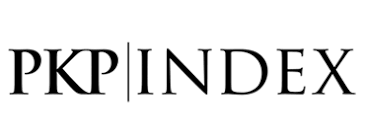Discovering the Digital Future: The Potential of Coding Education in Indonesia
DOI:
https://doi.org/10.58471/ju-komi.v2i01.362Keywords:
coding education, digital age skills, equity, learning outcomes, sustainable implementationAbstract
Coding education in Indonesia is critical in this age of rapid technological innovation. Coding provides learners with vital digital skills, promotes fairness in education, and improves learning outcomes. To discover the transformative influence of coding instruction, this qualitative study combines on-the-ground observation and a thorough literature review. This study adds to the body of knowledge and informs policymakers and educators by addressing equity discrepancies, evaluating their impact on learning outcomes, and proposing components for sustainable implementation. The findings argue for coding instruction in order to develop an inclusive and future-ready educational environment in Indonesia.
References
Advocacy. (2019). State of Computer Science Education Equity and Diversity. Retrieved from https://advocacy.code.org/2019_state_of_cs.pdf
Ben-Ari, M. (2001). Constructivism in computer science education. Journal of computers in Mathematics and Science Teaching, 20(1), 45-73.
Brennan, K., & Resnick, M. (2012). New frameworks for studying and assessing the development of computational thinking. In Proceedings of the 2012 annual meeting of the American educational research association, Vancouver, Canada (Vol. 1, p. 25).
Doyan, A., Wardiawan, Z., Hakim, S., & Muliyadi, L. (2020). The development of physics module oriented generative learning to increase the cognitive learning outcomes and science process skills of the students. In Journal of Physics: Conference Series (Vol. 1521, No. 2, p. 022059). IOP Publishing.
Misrulloh, A., & Dewi, N. R. (2020). Influence of science digital storytelling against motivation of learning and critical thinking ability learners. In Journal of Physics: Conference Series (Vol. 1567, No. 4, p. 042048). IOP Publishing.
Perry, J. C., Liu, X., & Pabian, Y. (2010). School engagement as a mediator of academic performance among urban youth: The role of career preparation, parental career support, and teacher support. The Counseling Psychologist, 38(2), 269-295.
Resnick, M., Maloney, J., Monroy-Hernández, A., Rusk, N., Eastmond, E., Brennan, K., ... & Kafai, Y. (2009). Scratch: programming for all. Communications of the ACM, 52(11), 60-67.
Sumarni, S., Darhim, D., & Siti, F. (2019). Profile of mathematical knowledge for teaching of prospective mathematics teachers in develop the lesson plan. In Journal of Physics: Conference Series (Vol. 1157, No. 4, p. 042107). IOP Publishing.
Thanaraj, A., & Gledhill, K. (Eds.). (2022). Teaching Legal Education in the Digital Age: Pedagogical Practices to Digitally Empower Law Graduates. Taylor & Francis.
Voogt, J., Fisser, P., Good, J., Mishra, P., & Yadav, A. (2015). Computational thinking in compulsory education: Towards an agenda for research and practice. Education and information technologies, 20, 715-728.
White, B. Y., & Frederiksen, J. R. (1998). Inquiry, modeling, and metacognition: Making science accessible to all students. Cognition and instruction, 16(1), 3-118.
Yang, Y. T. C., & Chang, C. H. (2013). Empowering students through digital game authorship: Enhancing concentration, critical thinking, and academic achievement. Computers & Education, 68, 334-344.
Zamora-Polo, F., & Sánchez-Martín, J. (2019). Teaching for a better world. Sustainability and sustainable development goals in the construction of a change-maker university. Sustainability, 11(15), 4224.











